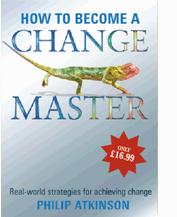Managing Conflict

The study of conflict resolution is critical as conflict is endemic in organisations. Organisations, peopled as they are by individuals and teams with varying motives and loyalties, suggests not only competing interests for resources – but also for attention, status, power and control of the organisation. Many organisations have developed a combative or competitive stance with conscious or other than conscious drives for control of resources, people and the culture itself. The presence of conflict indicates that there are differences of opinion, approach and priorities that have to be resolved. Declared disagreement therefore is the first step to positive resolution.
Conflict is often Ignored leading to even more stress
It is clear that conflict is a natural by-product of competing interests – healthy competition or otherwise, yet, mostly, conflict is ignored. Conflict is perceived as a negative force and yet it can be the most creative force in any business, provided that it is managed. Some organisations are so stifled by unhealthy ‘conflict containment’ strategies between managers, teams, functions, processes and specific locations and geographies that they expend more energy on containing, protecting and defending their interests than they devote to improving their businesses.
Case Study – Financial Services & Conflict Containment
Working with an Insurance company, we were focusing upon developing a coherent customer focus strategy across the whole business.
During initial research we were appalled to come across such bitter conflict and feuds between ‘support functions’ that it was surprising that the company retained any customers. Several support functions clearly went out of their way to create petty problems for other sections. There was no customer facing alignment. The whole ‘customer management process’, from initiating customer contact to closure of sale, was fraught with wars, sabotage and resentments with winners and losers. The apparent negative, blame culture was reinforced through stories of heroes, legends and villains that had been played out years before most current staff had worked in the company.
Many Opposing Cultures
Consequently, this organisation had developed very different cultures which were functioning outside the parameters of strategic intent. An alignment was required which started with a swift cultural intervention. It was not painless. By performing this much needed “surgery”, the culture changed overnight. It was important to get conflict out into the open and use it as a powerful tool for building a new culture. It started with the ‘top team’ addressing small cross-function sessions in the business, talking simply about win-win relationships and how imperative this was for the future. Then a commitment to develop their own change catalysts armed with a repertoire of change skills turned things about. This is what a focus on training in soft skills can deliver.
Change Strategies & Conflict Management
As in the example above it is imperative to immerse the business in change strategies and influence tactics that work. Resolving conflict requires a new mindset. Interaction, practise and rehearsal are fundamental to any process for interpersonal improvement. We combine this with specially designed role plays and exercises which are focused entirely on real business in the organisation. Every activity must reflect reality and the challenges and issues that they face everyday which will challenge their role and effectiveness in the future. Those designing the materials and process must be a blend of operational managers from the business and an empathetic behavioural consultant with the credibility to deliver.
Use our Contact Form and email Philip
Conflict is often Ignored leading to even more stress
It is clear that conflict is a natural by-product of competing interests – healthy competition or otherwise, yet, mostly, conflict is ignored. Conflict is perceived as a negative force and yet it can be the most creative force in any business, provided that it is managed. Some organisations are so stifled by unhealthy ‘conflict containment’ strategies between managers, teams, functions, processes and specific locations and geographies that they expend more energy on containing, protecting and defending their interests than they devote to improving their businesses.
Case Study – Financial Services & Conflict Containment
Working with an Insurance company, we were focusing upon developing a coherent customer focus strategy across the whole business.
During initial research we were appalled to come across such bitter conflict and feuds between ‘support functions’ that it was surprising that the company retained any customers. Several support functions clearly went out of their way to create petty problems for other sections. There was no customer facing alignment. The whole ‘customer management process’, from initiating customer contact to closure of sale, was fraught with wars, sabotage and resentments with winners and losers. The apparent negative, blame culture was reinforced through stories of heroes, legends and villains that had been played out years before most current staff had worked in the company.
Many Opposing Cultures
Consequently, this organisation had developed very different cultures which were functioning outside the parameters of strategic intent. An alignment was required which started with a swift cultural intervention. It was not painless. By performing this much needed “surgery”, the culture changed overnight. It was important to get conflict out into the open and use it as a powerful tool for building a new culture. It started with the ‘top team’ addressing small cross-function sessions in the business, talking simply about win-win relationships and how imperative this was for the future. Then a commitment to develop their own change catalysts armed with a repertoire of change skills turned things about. This is what a focus on training in soft skills can deliver.
Change Strategies & Conflict Management
As in the example above it is imperative to immerse the business in change strategies and influence tactics that work. Resolving conflict requires a new mindset. Interaction, practise and rehearsal are fundamental to any process for interpersonal improvement. We combine this with specially designed role plays and exercises which are focused entirely on real business in the organisation. Every activity must reflect reality and the challenges and issues that they face everyday which will challenge their role and effectiveness in the future. Those designing the materials and process must be a blend of operational managers from the business and an empathetic behavioural consultant with the credibility to deliver.
Use our Contact Form and email Philip

